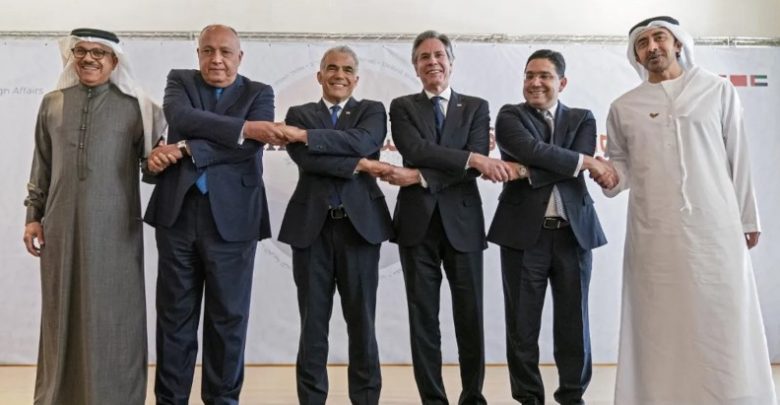Hassan Hanizadeh, speaking in an interview with the website of the Strategic Council of Foreign Relations, referred to the news published about the Sharm el-Sheikh meeting between senior military officials of the United States, the Zionist regime and some Arab countries regarding Iran’s drone and missile capabilities, and added: The meetings that have been held periodically in recent months in the occupied territories and Egypt have been with an aim of spreading rumors and making accusations against Iran to isolate it, and some Arab regimes that have a clear relationship with the Zionist regime are trying to create a propaganda and psychological war against Iran, with the centrality of this regime.
Referring to the internal crises of the Zionist regime and the power vacuum and political impasse created in it, he added: In this situation, the regime is trying to get out of those problems by forming coalitions and creating groups such as the Arab NATO and the plan to normalize relations and draw the attention to Iran.
This expert on West Asia affairs stated that the Hebrew-Arab NATO will definitely not be formed for various reasons, including numerous internal problems and relations between Arab countries, adding: The policy of the Zionist regime is to show that it is not alone and that it has powerful regional allies. While they see the realities of the region and the achievements of the Resistance Axis, it is clear to them that the nations of the region do not accept them.
Referring to Biden’s upcoming trip to the region, Hanizadeh continued: The Zionist regime’s strategy is to make maximum use of the trip and through media propaganda, demonstrate a regional campaign against Iran to influence public opinion and make relations with Arab countries, including Saudi Arabia, acceptable, while the Zionist media have also announced what can be done, will be at most some coordination and cooperation under CENTCOM.
Saying that Jordan’s foreign minister had said that his country is not part of the coalition that western media has proposed and that such a discussion will not be raised in the meeting of the officials of 9 Arab countries and Biden, he reminded: The Egyptian authorities have also announced that they have assured the Iranian authorities that they will not adopt hostile positions against Iran.
Hanizadeh pointed to the approval of the plan to counter Iran’s drones known as “Stop Iranian Drones Act” in the US Senate and said: Although the power of Iran’s drones has made General McKenzie, the commander of CENTCOM, to say that Iran is challenging the US Air Force in the region, the Zionist regime is advancing a series of space-building and measures in such a way that it can remove the existing obstacles in cooperation with some Arab countries and, on the other hand, in relation to Iran’s missile power, by fueling Iranophobia and creating a coalition of some reactionary governments in the region to increase the bargaining power of the West in nuclear negotiations.
The expert on West Asia affairs stated that in the past years we have witnessed the huge expenses of Arab countries to buy all kinds of offensive weapons from Western countries, and emphasized: Iran has a high deterrent power and it definitely has the right to improve its military defense capability. What Iran has achieved is indigenous and this is an unpleasant issue for some countries in the region and western powers. The Zionist regime has threatened global security with more than 200 nuclear warheads, and the countries of the Persian Gulf have bought only 80 billion dollars of weapons from the United States in the past three years.
Emphasizing Iran’s right to increase its deterrence power and the necessity of increasing regional consultations and strengthening alliances, he continued: Iran has designed a defined strategy in those fields. In addition, Iran’s recent moves to participate in the economic and political bloc in Central Asia is a strategy that has been unpleasant for Western countries and some Arab countries.
The analyst of West Asia affairs, regarding the US attempts to intensify polarization in the Middle East, said: We are in a situation where the leaders of the countries in the region know that any kind of tension is not in their own and the region’s interest. For this reason, now, after seven years of war against Yemen, Saudi Arabia was forced to surrender to the poor but resistant nation of Yemen. In Iraq, Syria and Lebanon, we also see the failure of efforts to impose the conditions desired by the US on the people of those countries.
